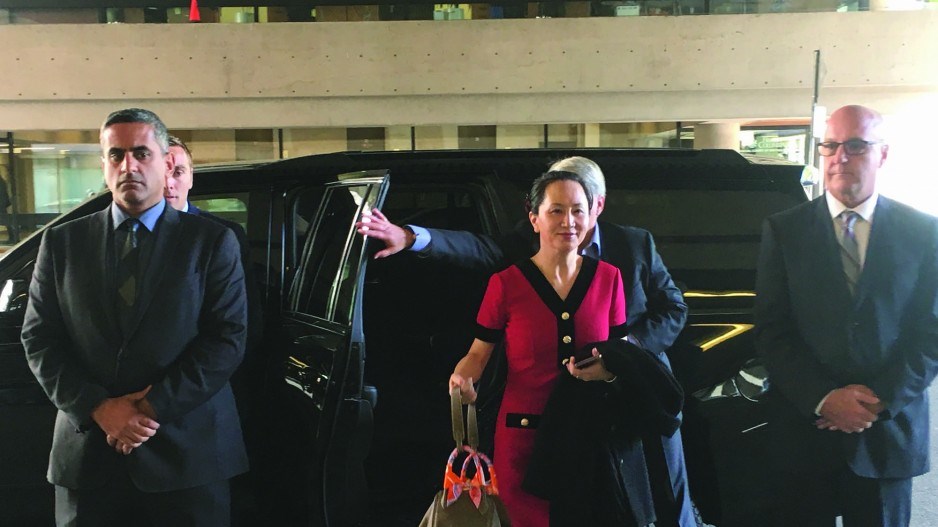The revelation that the Canada Border Services Agency (CBSA) mistakenly handed over cellphones and passwords collected from Huawei Technologies Co. Ltd. CFO Meng Wanzhou during her border entry check to the RCMP may prove problematic for Crown counsel seeking her extradition.
That’s the view of immigration lawyers about the latest developments in the Meng extradition case, which centred around Crown prosecutors’ defence of CB SA and RCM P procedures in waiting three hours between Meng’s detention upon arrival in Vancouver and her arrest by the RCMP last December.
Meng’s lawyers contend that authorities illegally obtained her electronic devices during those three hours and intended to share the information with U.S. officials who are seeking Meng’s extradition on money laundering and trade-sanction circumvention charges.
Last week, Crown counsel submitted an affidavit from a Canadian Department of Justice paralegal, noting that CBSA official Nicole Goodman contacted Crown prosecutors on September 30 to inform them “the passcodes for the phone [from Meng] were provided in error to the RCMP at
the time of transfer of Ms. Meng and her belongings.”
“I wanted to … make them aware the passcodes were provided in error and could not be disclosed as evidence nor used to access any of Ms. Meng’s devices,” the CB SA email read, adding later that the RCM P has been advised that the passcodes also could not be “shared with a third party” and that the RCM P has not accessed Meng’s devices as part of its investigation, and does not intend to.
Crown lawyer John Gibb-Carsley rebutted claims from Meng’s defence team that the information was collected with the intention to be shared with police in Canada and with the United States Department of Justice and Federal Bureau of Investigation for the criminal charges facing the Huawei executive.
“The passcodes of the devices were never used,” Gibb-Carsley told the court. “The devices were never searched. They never will be searched; they will never be sent to the United States.”
On the CBSA decision itself to seize Meng’s phone and password – deemed evidence of collusion by the defence – the Crown called the move “lawful and reasonable.”
“There’s no doubt that the RCM P and the FBI would be interested in the phones and may be concerned that the devices can be wiped remotely,” Crown lawyer Diba Majzub told the court. “But there’s no evidence that the CBSA isn’t interested in the phone for its own legitimate purposes.”
B.C. immigration lawyer and policy adviser Richard Kurland said that while it’s unclear how much trouble the password issue will cause for the Crown, the fact that CBSA did provide RCMP with the passcodes, and waited months before notifying the police that it shouldn’t have happened, will need to be addressed.
“It gets wrapped up into the question of the damage done by the charter-right violation,” Kurland said. “What the Crown is saying is, ‘You can prove that it shouldn’t have happened. You can’t prove an intent on our part to have done that, and in addition, you haven’t shown any damage.’ It’s going to be problematic for Crown. It happened; it’s a fact. And it’s up to the court to determine, how material is this event? and how does it affect Meng’s rights?”




